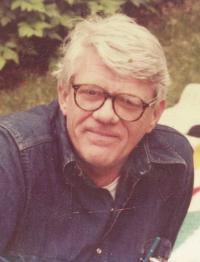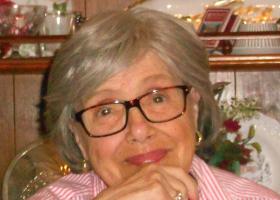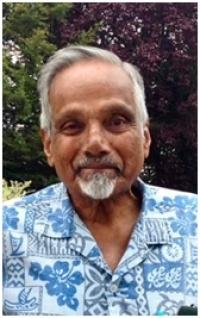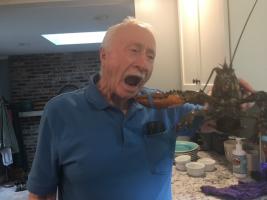 John Austin Hunt of Amherst, MA, October 27, 1930 – July 26, 2015
John Austin Hunt of Amherst, MA, October 27, 1930 – July 26, 2015

Amherst, John Austin Hunt, Emeritus Professor of English at the University of Massachusetts Amherst, died quietly on Sunday morning July 26th at Elaine/Hadley Rehabilitation facility after recent hospitalizations. He was “Austin” to folks in Oklahoma, and “John” elsewhere.
John was born October 27, 1930 in Bartlesville, OK. His father, Cecil L. Hunt from Wagoner, OK, was Chief Counsel/Vice President at Phillips Petroleum. His mother, India Miriam (Austin) Hunt, was a gifted pianist from Chickasha, OK. His paternal grandfather from Clarksville AK was mayor and judge in Wagoner, OK, and his maternal grandfather from Whitewright, TX became President of Oklahoma College for Women in Chickasha, OK. John grew up in Bartlesville, OK where he attended public schools and worked summers on the pipeline and in the harvest fields. His parents, later of Tulsa, OK, and younger brother David W. Hunt of New York City, predeceased him by many years.
At Washington & Lee University in Lexington, VA, John earned a BA in English and Philosophy (1948-52), and was senior class president and president of his local Kappa Sigma chapter. He distinguished himself as director of dramatics for the university (on fellowship), producing and directing four plays. This experience proved an early instance of John’s ability to develop administrative support within educational programs which allowed creative people to flourish.
With a Fulbright to England to study drama under Allardyce Nicoll (1952-4), John earned A PhD at the Shakespeare Institute of Birmingham University at Stratford-on-Avon (1966). His doctoral study was interrupted by army service in the Antiaircraft Artillery Replacement unit at Fort Bliss (TX), where he taught target practice and sharpshooting, and at Fort Chaffee (AK) (1954-1956) where he married his first wife (Betty Chandler, deceased). John returned to England and lived there for a decade and wrote his thesis while working for the US Air Force’s higher education program (1956-61) and enjoying victories with the Air Force fencing team before becoming Senior Area Director (England) for the University of Maryland Overseas Program (1961-66). His European travels, and passion for music and theater did nothing to dampen his administrative appetite for classes, teachers and students rather than for custom-made suits and shoes, as his colleagues pertly noted. He gained considerable respect for the rapport he had with his faculty.
John returned to the US in 1966 as an Assistant Professor of English (Shakespeare and Renaissance Drama) at the University of Massachusetts Amherst and as “Master/Director” of Southwest Residential College, an experimental college of 5500 students. With Residential College colleagues he facilitated departmental course sections in residence hall classrooms, lured faculty into living-learning teaching roles, and fostered an innovative curricula on racism, sexism and related social justice issues, years before such efforts took root elsewhere on campus. He encouraged collaborative faculty, staff, and student budgetary and curricular decision-making. Through the ‘60s and ‘70s the program flourished under his spirited and pragmatic direction, until the early ’80s when it was dismantled.
John became a vigorous chair of the Chancellor’s Commission on Civility (later the Chancellor’s Counsel of Community, Diversity and Social Justice, now disbanded) that offered visibility and voice for underrepresented campus groups. He had two administrative stints as Assistant or Associate Provost (1974-5, 1976-9), providing advocacy and relative budgetary stability for the many non-traditional academic units grouped as Special Programs. John returned to the English Department (1979) where he was Undergraduate Program Director while teaching Shakespeare full-time. He offered courses through University Without Walls and took Shakespeare into local high schools, until his phased early retirement in 1994-6.
During his University years and into his retirement, John was an enthusiastic squash and tennis player, a voracious reader, and active in local theater. He sang bass baritone in the Hampshire Choral Society and with Valley Light Opera and produced voice-over narratives for Computer Science videos and for others who made use of his resonant voice. Amherst visitors to the Huntington Museum in Pasadena, CA, were stunned to hear his voice-over describing maple-syrup production in Deerfield, MA. John became a skilled sailor, rebuilt a 43’ steel-hull sloop The India Miriam, and sailed Long Island Sound and Maine waters.
He started as an actor with male leads in high school and college plays and summers (1950-2) in “The Common Glory” (Williamsburg, VA). Later roles (1970s through 1990s) were in productions at Hampshire Shakespeare Theater (Thomas of Woodstock); New World Theater (Blues for Mr. Charlie); Project Opera (The Impresario); Smith College Theater 14 (Mourning Pictures, The Art of Dining, Misalliance, The Tempest); The UMass Ensemble Theater (Love’s Labor Lost), Reader’s Theater (How Do We Choose to Live?) and Theater-in-the-Works at the Curtain Theater (The Wedding, The Bozo File, Out of Order, Saloon Society). He appeared in a local revival of MacLeish’s Panic and a staged reading of Gibson’s Handy Dandy. John’s interest in community theater led him to help found and sustain Northampton’s City Studio Theater where he also acted (No Exit, Texas Trilogy, The Great White Class) and to perform readings of new plays with Valley Playwrights. Those who saw him as Prospero in the City Studio Theater’s production of Shakespeare’s The Tempest at the Look Park Outdoor Stage were struck that this was a signature role, one he interpreted as the administrator for a small island who had to move quickly against great odds to settle things equitably for the next generation.
After retirement he continued sailing and reading as health permitted and travelled in Europe, South Africa and Yucatan, road trips along the Eastern seaboard and the Southwest, and long visits to London and elsewhere for theater, opera and music. Summers were spent sailing in Maine unless interrupted by acting commitments in Western Massachusetts.
John was a great-hearted, forward-looking, and courageous man, loyal, honorable and generous, with integrity, a sharp wit and a quick warm hearty laugh. He was deeply private but brightened the moment someone entered the room. He adored good stories, especially about local and national politics, and held his friends close to his heart. For his wife of thirty-five years, Maurianne Adams (Emerita Professor of Education, who survives him), he was a mentor, best friend and irreplaceable buddy.
John wanted no funeral or memorial services, but there will be a special event for friends and University colleagues in September. Gifts in his honor can be made to the Cooley-Dickinson Visiting Nurse Association/Hospice, who were very good to him. Obituary and memorial register at www.douglassfuneral.com
Service details, Social networking, Memorial Guestbook and Slideshow are available here.


